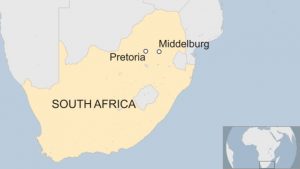The Special Prosecutor, Martin Amidu has raised issues with the controversial Agyapa Royalties Deal.
In his corruption risk assessment of the controversial deal, Mr. Amidu argued among other things that consultations over the agreement were not comprehensive and innovative enough.
He further disclosed that the selection and appointment of advisors for the agreement did not meet the “fundamentals of probity, transparency and accountability.”
The Special Prosecutor in his report took a swipe at the various officials who took part in the processes leading to the approval of the agreement.
According to him, the actors flouted several laws with impunity prior to the approval of the agreement.
“All the parties to the Mandate Agreement are deemed to have known the law but ignored it with impunity in signing and implementing the Mandate Agreement which is null and void ab initio as violating the Public Financial Management Act, 2016 (Act 921) and the Public Procurement Authority Procurement Act, 2003 (Act 663) as amended. This conduct which appears to have been in furtherance of the suspected bid-rigging, in the assessment of this Office severely lowered the risk of corruption, and rendered them a low risk enterprise in the Agyapa Royalties Transactions process and their approval. It is with these new lenses that the analysis of the risk of corruption, and anti-corruption assessments of the legality of the engagement of the other services providers and underwriters on the recommendations of the Transaction Advisors acting as the Ministry of Finance’s procurement entity tender committee contrary to Part VI of the Public Procurement Act, 2003 (Act 663) as amended, and Sections 7 and 25 of the Public Financial Management Act, 2016 (Act 921) afore-quoted were made.”
“It was further analyzed and assessed that the Transaction Advisor(s) nonetheless, went ahead to identify and recommend services providers and underwriters to the Ministry of Finance for appointment by the Republic of Ghana. The Ministry acted contrary to the Public Procurement Authority Act and the Public Financial Management Act in delegating the power to appoint services providers and/or other underwriters to the unlawfully appointed Transaction Advisor(s). The Transaction Advisor(s) whose selection and appointment by the Ministry of Finance did not measure up favourably to the analysis of the risk of corruption and anti-corruption assessment that meets the fundamentals of probity, transparency and accountability was/were potentially susceptible to undue influence, favouritism, cronyism, nepotism, and all forms of discrimination abhorred under the 1992 Constitution leading to the suspected packing of the services provider and underwriters position with entities not chosen on merit.”
Background
The Agyapa deal is a by-product of the Minerals Income Investment Fund Act.
In 2018, Parliament passed the Act which establishes the Fund to manage the equity interests of Ghana in mining companies and receive royalties on behalf of the government.
The purpose of the fund is to manage and invest these royalties and revenue from equities for higher returns for the benefit of the country.
The government then, through the Minerals Income Investment Fund (MIIF), set up Agyapa Royalties Limited to monetize Ghana’s gold royalties.
This was after Parliament on August 14, 2020, approved the Agyapa Mineral Royalty Limited agreement with the Government of Ghana despite the walkout by the Minority.
The company plans to raise between $500 million and $750 million for the government on the Ghana and London Stock Exchanges to invest in developmental projects.
The deal has generated public discourse with some Civil Society Organisations vowing to reject the agreement claiming it is a total rip-off.
Deal suspended
The controversial deal was suspended by the government last month after intense public and CSO complaints of suspected corruption.
The Minister for Finance in a notice to Parliament said the decision to suspend it was to enable the Special Prosecutor to conclude his corruption risk assessment into the deal.
Martin Amidu earlier blamed the Finance Ministry for the delay in completing his work on the deal.
Source: Citinewsroom.com







